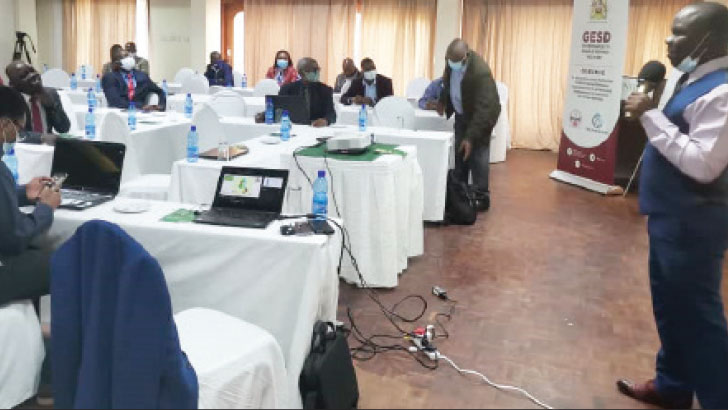Councils perform poorly
A Local Authority Performance Assessment report has exposed glaring public finance management gaps in 28 local councils, ranging from inefficiencies in development planning, budgeting and auditing to contract management and implementation.
Government conducted the Local Authority Performance Assessment for the 2019/2020 financial year as a precursor for the Performance Based Grant (PBG). Results of the assessment to determine eligibility and amount to be given from the PBG.
According to the report, Balaka District Council has emerged the best performer after scoring 67 percent followed by Lilongwe (62 percent), and Mchinji (61). Kasungu and Rumphi are tied on position four with 59 percent.

Worst performers are M’mbelwa, Mangochi and Phalombe which have scored 25 percent each, Machinga (24) and Chiradzulu with 21 percent. On average, councils nationwide scored 41 percent.
On financial management, the report shows that 20 local authorities, representing 71 percent of the districts, registered below average performance with scores ranging from 18.1 percent to 45.5 percent.
It reads in part: “Poor record keeping as important financial documents such as minutes of full council and finance committee, audit committee; monthly financial reports were not readily available.
“The bank reconciliation statements were not up to date in most councils; and monthly financial reports were not submitted to [National Local Government Finance Committee] NLGFC by 10th of every month.
“Furthermore, revenue customer database/ business register in [Integrated Finance Management Information System] Ifmis were not up to date.”
Balaka has performed well owing to its sound procurement and contract management systems.
The report also indicates that the district council has better internal audit system and is able to mobilise local resources, attributes which are almost lacking in councils such as M’mbelwa and other poor performers.
The results follow numerous reports which show that councils are pathetic underperformers in some key governance areas that include finance management, with the Public Accounts Committee (PAC) of Parliament recently decrying serious capacity gaps in the councils.
Government and the councils, including institutions that have worked with the councils have since blamed the matter on, among others, the high vacancy rate, especially for key personnel in finance and procurement.
Reads the report further: “Out of 28 district councils, only eight councils had an internal auditor which means internal audit was non-functional in 20 [councils]. The results also show that there is weak resolution of the audit issues identified internally or externally. This could be attributed to high vacancy rates in the audit section of the districts.”
The report also shows that districts such as Chitipa, Karonga, Nkhotakota, Ntcheu, Dowa, Salima, Mangochi, Machinga, Phalombe, Chikwawa, Chiradzulu and Mwanza performed poorly on development planning and budgeting due to poor record keeping.
The situation is worse in procurement with the report showing that there are normally no procurement files, contracts, offer letters, acceptance letters, and the Internal Procurement and Disposal Committees work without proper mandate.
In his remarks, Rumphi acting district commissioner McPhine Mzumara, whose district scored 59 percent, was excited with the report, but said there is room for improvement if the vacancies on key positions are filled. He said Rumphi has about 40 percent vacancy rate.
Said Mzumara: “What I think is a problem is staffing. Sometimes you don’t have key personnel. Regardless, we are committed to continue to improving.”
M’Mbelwa District Council chairperson Paul Chondo Tegha admitted the challenges they are facing, attributing them to incompetence.
He said: “We have performed badly, but we will improve. On all areas of assessment, we are mostly occupying last positions, so for me, this means some of our directors are incompetent.”
Ministry of Local Government chief economist Flemmings Nyirenda, who presented the results to councils in Mzuzu yesterday, said an assessment conducted in 2019 showed that councils had about 56 percent vacancy rate; hence, government has recruited people in the departments of finance and accounts who will report for duties soon.
He said: “It is in contract management where they advertise for projects, supervise them, issue interim certificates and conduct site meetings to projects. That is where we have not done well, most councils did not monitor projects to check quality. We have embarked on a number of initiatives to work on capacitating the council like recruiting staff.”
Nyirenda said government set aside K500 million for salaries of new staff, which also included promotions of directors.
Catholic Commission for Justice and Peace national coordinator Boniface Chibwana, whose institution recently assessed the capacity of some councils, said there are serious capacity challenges due to under-staffing.
He said: “The fact that even in the assessment only five scored above 50 percent shows we have serious issues.
“We need to put in place measures to rectify a number of challenges. This is the opportunity to enhance service delivery and accountability.”
Economist Milward Tobias, who is also executive director of Centre for Research and Consultancy, said there has not been a corresponding investment in human resources in local councils.
The Local Government Act, as read with Section 10 of the Public Finance Management Act, makes it controlling officer’s responsibility to maintain proper financial management systems.





